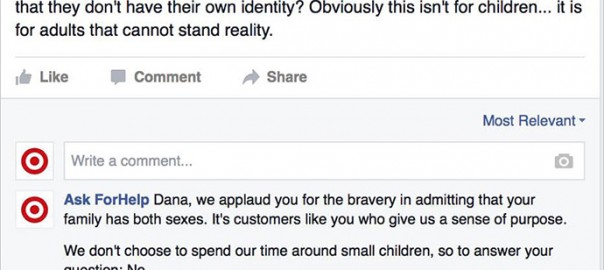If you don’t already know, working as a customer service representative in an enterprise contact center can be one of the most daunting jobs in the world, and there are certain things that even the most even-tempered agents sometimes wish they could say to a disgruntled customer.
Perhaps sensing those hidden urges—or having worked in customer service themselves—some Internet comedians have recently begun giving a voice to the voiceless by pretending to be customer service agents at the helm of the Facebook pages of major brands.
“We Hope that Helps”
In July, comedians Ben Palmer, Nick Price, and Ryan Shipley, operating under the Facebook name “Customer Service” with a profile picture of a woman wearing a headset, engaged in an all-out trolling spree of customers posting complaints to the official Facebook pages of a variety of American companies, including Arby’s, eBay, Starbucks, AT&T, and Chipotle.
Here’s a small sampling of the trio’s handiwork, which wasn’t a first offense for Palmer:



Palmer, Price, and Shipley have been collating some of their proudest moments of customer service impersonation on a website titled “Customer Service: ‘We Hope That Helps.’” Brands have caught on to their antics, blocking them or at least clarifying their unofficial status, but that doesn’t seem to have deterred them, as they continue to post evidence of their crimes against CX.
The Case of the Target Troll
And they’ve inspired at least one copycat commenter. This month, a Facebook user named Mike Melgaard created an even more official-looking customer service persona of his own, naming the account “Ask ForHelp” and using the Target logo as his avatar.
Melgaard told AdWeek’s AdFreak that he decided to create the account after seeing how outraged some Target customers were by the company’s decision to implement more gender-neutral signage in its stores. “I definitely side with Target and support their decision wholeheartedly,” he said. “That being said, this was, for me, more about the laughs. I absolutely love satirical humor, and I think America could use a little more laughter.” These are just a few of his replies to angry customers:



Unfortunately for Melgaard, his epic Target trolling spree was shut down just 16 hours and 50 posts after it began.
If You Can’t Beat Them…
While this kind of trolling can be pretty funny to outward observers (and less so to the actual customers being mocked), will the sheer entertainment value inspire even more quasi-helpful commenters? How should brands respond if it happens to them?
If nothing else, these vigilante customer service imposters can serve to inspire new discussions about how companies can better manage their social media pages. One solution might involve exploring the option of strongly encouraging customers to use Facebook and Twitter’s private message function, taking more customer service discussions behind the scenes and out of the limelight of social media’s usual public forum.
Another potential fix would be to double down on social media staffing through smart workforce management, training more contact center agents to monitor your company’s social channels and alert the right personnel as soon as something seems amiss. Those agents can then take swifter action to report or flag a wayward commenter or tweeter, stopping potential problems before they get out of hand.
But in the wild west of social media, sometimes companies just have to roll with the punches.
In their official response, Target didn’t seem amused by Melgaard’s trolling antics: “At Target, we are committed to providing outstanding guest service to our guests wherever we engage with them—in our stores, online, or on our social pages. Clearly this individual was not speaking on behalf of Target.” Fortunately, Target’s social media team, to their credit (and many thousands of Likes), had a bit more fun with it all:

(338)
Report Post





